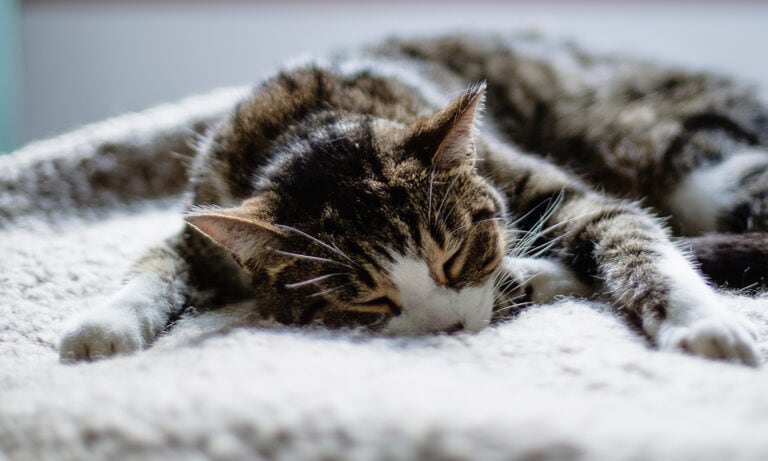Q.
I rescued a big male cat from the MSPCA about two years ago. He is the most affectionate cat I’ve ever seen and has no temper to speak of. Actually, I find his affection kind of odd. He wants to be near me all the time and he stares at me constantly — even while I sleep. According to my roommate he wanders around for a long time looking and meowing for me when I leave home. Everyone who meets him exclaims that he is obsessed with me. Is this a problem or is it common? It doesn’t bother me but I wonder if this is because he was neglected before I rescued him (I know nothing of his history).
A.
It sounds like your cat may be exhibiting cat separation anxiety. Even though his behavior does not bother you, it is stressful for him. The origins of the behavior probably are rooted in his past, before you pulled him from the humane society. The original trigger of the anxiety could have occurred when he was surrendered to the shelter, separated from the person or family he had strong attachments with. Regardless of the reason, it would be better for him not to be stressed and anxious.
You can help your cat overcome his anxiety and feel more secure in your home through a few specific activities. Start by helping him adjust to your leaving the house by placing clothes you’ve worn or slept in on his favorite sleeping areas before you leave for the day. Your smell will help reassure him that he hasn’t been abandoned again. Hearing your voice will also help him feel secure. Buy your cat a cat treat ball that can record your voice. Treat balls are hollow plastic balls with holes in them. In order for your cat to get the treat, he has to roll it so that the treats fall through the holes. A couple of models have recorders built into them. Every time he bats the cat treat toy, he’ll hear you telling him what a great cat he is.
Forming bonds with at least one other person will also help change your cat’s behavior. If your roommate likes him, ask your roommate to give your cat healthy cat treats and to play and interact with him on a daily basis.
Adopting another cat to keep your cat company may help the situation. Understand that your cat may not like other cats. The shelter should have provided you with his history when you pulled him. Notes on the form might specify if he has a history of living peacefully with other cats. If he does well with other cats, you may want to find him a new cat buddy who is close in age and also enjoys the company of other cats.
By: Marilyn Krieger, CCBC
Featured Image: Poberezhna/Shutterstock
Share:









